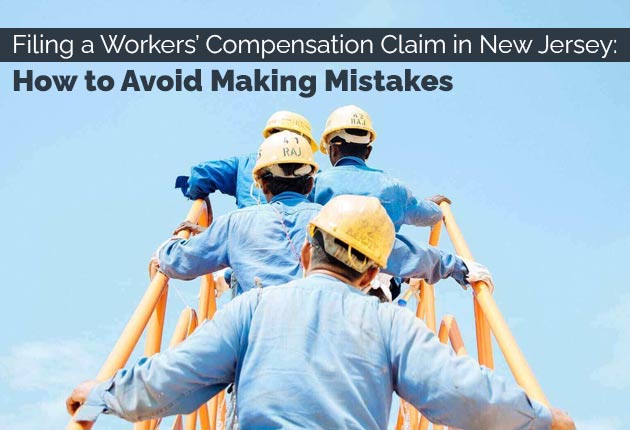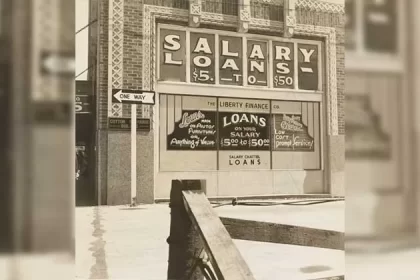With a few exceptions, think of a mom-and-pop store with only a couple of employees, all businesses in New Jersey must carry workers’ compensation. This means if you’re injured on the job or you get sick, the insurance covers things like your medical expenses and lost wages.
While you hopefully never need to file a claim, it’s nice to know you have coverage. However, workers’ compensation in New Jersey has some strict requirements so you don’t want to make a mistake filing a claim. If a mistake is detected, it can delay your claim or even result in a denial.
What Workers’ Compensation Covers in New Jersey
A common mistake is filing a worker’s compensation claim for something not covered by the insurance. Workers’ compensation only covers specific job-related injuries and illnesses.
For example, if you’re injured in a car accident but don’t start displaying signs and symptoms until you get to your job, workers’ compensation isn’t going to cover your damages. You’ll either turn to your health insurance or file a claim against the at-fault driver.
Okay, with that being said; what does workers’ compensation cover?
- Medical costs: This includes medical treatment for the injury or illness. The coverage can also extend to include ongoing medical care like future surgeries or therapy.
- Lost income: The insurance covers your lost wages while you’re recovering.
- Temporary or permanent partial disability: If you’re unable to return to work for more than seven days, you may be eligible to receive temporary disability benefits. If your injuries or illness prevent you from returning to your previous duties, you may be able to receive permanent partial disability benefits.
- Permanent total disability: If you lose two major body parts, like both legs, and can’t return to work, you may be able to claim permanent total disability.
Workers’ compensation can also provide death benefits. This can include covering funeral costs if a loved one dies in a workplace accident.
Does Your Injury Qualify For Workers’ Compensation
Not all staff members are covered by workers’ compensation insurance. This includes freelancers and independent contractors, along with both unpaid volunteers and interns. This doesn’t mean the workplace can’t be held liable for any injuries occurring on the premises, only that workers’ compensation doesn’t cover any of the related expenses.
If your accident or illness is caused by your job and you’re a paid employee, workers’ compensation typically covers your damages. This applies if your illness is caused by exposure to hazardous substances or allergens. You may also be able to file a workers’ compensation claim for any repetitive motion injuries like muscle stress and strains.
Knowing what is covered under workers’ compensation in New Jersey is a good way to avoid making any mistakes on your claim.
How to File a Workers’ Compensation Claim in New Jersey
If you’re injured while on the job or develop an illness, the first step in the workers’ claim process is notifying your employer.
You have 90 days from the incident date or when your illness or injury is diagnosed to notify your employer. This is a deadline you don’t want to miss. If you miss the notification deadline, there’s a good chance you’re not going to be able to file a claim for workers’ compensation.
However, you do have two years to claim any benefits. This means, after notifying your employer you don’t need to immediately move onto the paperwork. You still have over a year to calculate your damages.
The second step is filing Form 1A-1, also known as a First Report of Injury (FROI). After notifying your employer, you have three days to complete the form. However, this doesn’t necessarily mean you’re claiming any benefits.
The form only alerts Workers’ Compensation that an injury or illness occurred and you’ll be following up with a detailed list of your damages. Remember, your damages can include medical costs and lost wages. If a fatality occurs, you have 24 hours to submit the claim after notifying your employer.
As long as your workplace injury or illness meets the above-listed guidelines, your claim should be accepted. This means within about seven business days, you can start receiving compensation for your medical expenses.
Workers’ compensation will authorize payments to your medical provider. You don’t receive a check for these types of damages. However, if you miss more than seven days of work, you can receive a check for your lost wages.
Common Reason Workers’ Compensation Claims Are Denied
There are a couple of common reasons why workers’ compensation claims can be denied. You may be trying to claim an injury or illness that didn’t occur at work or while performing job-related duties. An example is if you’re injured in a slip-and-fall accident while on your lunch break. If you leave the premises on your break, your accident probably isn’t covered by your employer’s workers’ compensation insurance. This may also apply if you’re injured at work but aren’t on the clock.
Another common reason for a claim denial is if you make mistakes filling out Form 1A-1. The requested information is pretty basic, but mistakes can still happen. Even a minor error like filing in the wrong date can result in an automatic denial. Sometimes, you can refile the injury form but deadlines often still apply.
Chances are, your mistake on the claim form will result in an informal hearing. You’ll need to file an Application for an Informal Hearing with New Jersey’s Division of Workers’ Compensation. This is also where you go if you’re disputing the coverage amount. Your settlement may not cover all of your medical expenses or lost income.
The informal hearing takes place in front of a judge and their ruling is legally binding if you make a formal claim. However, if you’re only requesting an informal hearing, you can contest the judge’s ruling.
If you don’t agree with the judge’s decision in an informal hearing, you can file an appeal with the Appellate Division of the state’s Supreme Court.
Ensuring Your Workers’ Compensation Claim Goes Smoothly
To avoid any complications with your workers’ compensation claim, it’s a smart idea to work with an experienced attorney. They can review your paperwork to make sure it’s error-free and complete, preventing any possible delays or rejections.
If your case does go to appeal, your attorney will manage all aspects, advocating on your behalf to achieve the best possible outcome. Their expertise and dedication provide invaluable support, providing you with peace of mind throughout this trying time.










